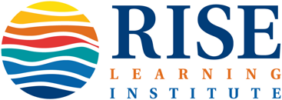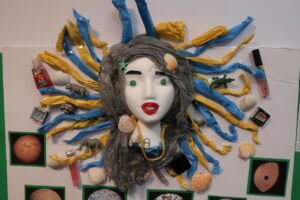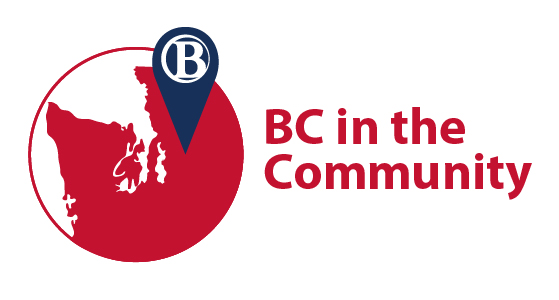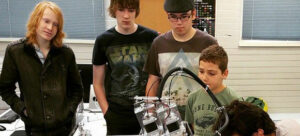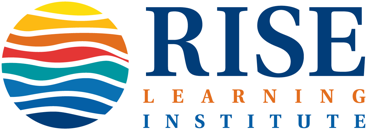

“It’s about learning as if the world exists.”
Travis Tennessen, Western Washington University & Founder of Community Engagement Fellows
We will use this page for all materials, worksheets, and reflections for the 2023 cohort of the RISE Community Engagement Fellows. Please bookmark this page, as it will not be accessible from the RISE website.
Schedules
Spring Schedule (2 Groups):
Group 1 (Wednesday “Morning”)
April 12, 11:30am-1:30pm
April 26, 11:30am-1:30pm
May 10, 11:30am-1:30pm
May 31, 11:30am-1:30pm
June 7, 11:30am-1:30pm
Group 2 (Wednesday Afternoon)
April 12, 3pm-5pm
April 26, 3pm-5pm
May 17, 3pm-5pm
May 24, 3pm-5pm
June 7, 3pm-5pm
Winter Schedule (2 Groups):
Group 1 (Tuesdays)
Bellevue School District
12011 NE 1st Street
3rd Floor, Suite 308 (Equity, Family, & Community Engagement)
Located in Eastridge Corp. Center
January 17, 3pm-5pm
February 28, 3pm-5pm
March 14, 3pm-5pm
Group 2 (Fridays)
Bellevue School District
12011 NE 1st Street
3rd Floor, Suite 308 (Equity, Family, & Community Engagement)
Located in Eastridge Corp. Center
January 20, 9:30am-11:30am
March 3, 9:30am-11:30am
March 17, 9:30am-11:30am
If you cannot attend your scheduled gathering, please try to join the other group that week. If you cannot attend either gathering, or if you have other questions or comments, contact Sapan Parekh.
CEF Materials
We pause to acknowledge that we reside on the traditional and occupied land of the Coast Salish Peoples – past, present, and future – that includes but is not limited to: Snoqualmie, Suquamish, Duwamish, Nisqually, Tulalip, and Muckleshoot (Smulkamish, Stkamish, Skopamish, and Upper Puyallup). We honor their connection to the region, pay respect to Coast Salish Elders past and present, and stand in solidarity through their struggles with continued systemic oppression.
We also acknowledge the legacy of colonization embedded within the technology, structures, and ways of thinking we use every day. The infrastructure and equipment required for this increasingly virtual world cross indigenous land and water, and leave significant carbon footprints, contributing to changing climates that disproportionately affect indigenous people worldwide.
With these acknowledgements, we commit to care for this shared world, and center equity at the core of our (un)learning. We further commit to using our expanded education and agency to acknowledge injustice AND work to make systemic change in support of Indigenous rights.
(Adapted from Adrienne Wong from SpiderWeb and Bellevue College’s Office of DEI)
I acknowledge the lack of diversity in Science, Technology, Engineering, and Math (STEM) fields due to the way our society chooses to educate and select students for those fields, which is based on elitism. There is also a lack of career knowledge students have that results in a disproportionate number of pre-medical and engineering students who overlook many other rewarding science careers, and as a result, create an incredibly competitive environment where students value testing and grades above the things that matter for their future happiness and success.
It is heart-breaking to see the genuine spark for science that young people have be extinguished so quickly by the machinery of standardized testing, rote memorization, and competitive admissions processes. I sympathize with the many students in math and science courses who were made to feel that they don’t belong and aren’t smart enough. Or the students who do feel they belong but do not experience joy in their work. Instead of fun and exploration, students are often met with difficult exams in which low grades are the norm and only the privileged succeed. This results in an incredibly homogeneous population of scientists which exclude women, low-income, and BIPOC students. Imagine if science were more inclusive – imagine the discoveries that would be made, and the people that would benefit. Students need supportive mentors, and teachers who teach in a more humanistic way, in a society that sees more than test scores. Real science is based on experimentation and testing ideas, even ones that may not be correct. We need to continue reforming science education and the attitudes that result in stifling curiosity and diversity.
(Jennie Mayer, Bellevue College)
We acknowledge that homelessness is real and many individuals and families across the country and within our communities are struggling with emotional and behavioral impact caused by the lack of a stable housing. The rising rents and lack of affordable housing in our communities also has made it difficult for many working families to live in the communities that they work in. Families are spending over 75% of their income on housing and do not have income left over for basic everyday essentials. This leads to anxiety, depression, stress, and other issues associated with housing, job, hygiene, and/or financial insecurity. We recognize the stigma surrounding these struggles and the policy changes needed to address the social and economic needs of the communities we serve. As an organization, we strive provide the resources and support identified for and by the people we serve to empower dignity daily.
(Nickhath Sheriff, Essentials First & MCRC)
We acknowledge that the language in which this statement is made, English, is only one of thousands of languages of the world, all equally worthy, each a precious link between generations, each imbued with cultural knowledge. We honor all of those languages, whether spoken or signed, written or unwritten.
We acknowledge and grieve the damage done to individuals, families, communities and cultures when their languages, modalities, dialects or accents are labeled inferior or incorrect, and when their children are punished for using them. We honor those who must take up the challenge of learning a new language when they move to a new land. And we honor those who teach and learn to keep their culture’s threatened languages alive.
We acknowledge that when settler colonialism suppressed the indigenous languages of this country, it also suppressed the worldview of those whose stewardship had kept this land healthy since time immemorial. In English, that worldview is now expressed in phrases like “kinship theory”, seeing the natural world and its inhabitants as “all our relations.”
To learn from the wisdom of that worldview, we can consider also the communication that humans are just beginning to be aware of: the songs of whales, the dance of honeybees to tell their sisters where to find nectar, the chemical signals that trees pass through the air and their roots. Without the trees to make oxygen for us to breathe, root the earth in place and filter the water, without the other plants and all the pollinators that make them fruitful, without our fellow animals, we would perish in a barren land. Let us be more humble, careful and generous with all those with whom we share the earth.
(Nancy Emery, Bellevue College)
It is not easy to make change. Even small changes must fight through years and decades and centuries of entrenched beliefs, ideologies, power structures, and systems to have a chance at occurring. They must battle misconceptions, biases, deeply held “but we’ve always done it this way’s”, and yards and meters of red tape just to have a hope of being breathed into life. And yet, change happens because of the fighters. They say the words. They craft the stories. They activate the champions. They stand their ground. These changemakers do not turn away at the inevitable No; they feed off that No like a battery, finding greater energy to push ahead and push through.
Today is not our ancestors’ world. Today is neither how they lived nor what they would have expected. While social injustices and environmental degradation still exist, we have moved beyond what our ancestors knew. These fighters, these changemakers did not accept our ancestors’ truths, just as our descendants will not accept ours. So, we acknowledge and honor the changemakers – past, present, and future – who envision a better, more equitable, just, and sustainable world, and do not give up or give in. Our world, our today, is because they fought and bled for it. Our world is because of them.
(Sapan Parekh, Bellevue College)
We pause to consider and acknowledge the vital role of mothers in our society and cultures. Mothers bear the tremendous weight of responsibility, mostly taken for granted, of preparing the future of humanity for the challenges and choices of adulthood.
A mother’s work is vital and exhausting and incredibly undervalued. Most cultures relegate and discount the work of mothering to the role of women, conflating subservience, femininity, and domesticity, overvaluing, over-valorizing and conflating masculinity, commerce, and authority.
A mother’s work is often unpaid or underpaid and those who do the labor of mothering as a profession are often, shamefully, treated poorly and are abused. The work and role of a mother may be exalted in art and culture but it is so always in the service of men. The image of a Madonna is not revered in and of itself but in its connection to her offspring.
While the role of motherhood may be inextricably linked to progeny, we should not fail to exalt the mother as “the beginning” and therefore at least the equal of her children, as they can only stand for what she instills in her steadfastness in nurturing.
We also acknowledge that mothering does not and should not imply gender. Anyone can take on the role of a mother if that is where they are called to do. If the womb is the symbol of fertility, then the arms are the symbol of nurture. We hereby call for respect and reverence to those who ensured our species’ survival, who instilled in us respect for ourselves, each other, and our environment, and we call that their work be elevated so that the balance that is missing from Western cultures be restored and revitalized for the good of all who share this planet.
(Jeremiah Allen, Bellevue College)
We acknowledge the power of history and its power to shape, define, and guide our lives and future. We acknowledge that history is neither a single narrative, nor a product of the powerful, but rather a collection of individual stories, a reflection of all the ancestors who have walked this earth before us. Our histories as humans are imperative to our identity, and our connections to Earth, our histories serve as foundations for how we view ourselves.
We acknowledge that our written global histories come to us from the prisms of colonialism, white supremacy, and orientalist narratives. These narratives have for hundreds of years defined people and confined their stories into shells. These false narratives have caused harm and contempt and continue to be produced by those with the power to control the narrative and overshadow the truth.
We recognize that difficult parts of history are not confined to a timeline but have ripple effects that continue to impact our present. We recognize that in many instances, the victims of history have had their stories told by those who have inflicted colonization, displacement, and genocide against them.
We acknowledge the resilience of our ancestors and their descendants, who have fought against colonial erasure, and who have claimed ownership of their own narrative, speaking truth to power. Fighting forces more powerful than themselves all to keep their stories alive. We pay homage to these stories, and we recognize that history is incomplete until it can be undone, redefined, and retold through the collective stories, perspectives, acknowledgments, and recognitions of all those who built the world we share.
(Salam Awad, Bellevue College)
We pause to acknowledge the language preservers. There are hundreds of endangered languages in the world – endangered because of forces such as colonialism, globalization, explicit government policies and language ideologies. We acknowledge the work of speakers who have pushed back against these forces to preserve their languages in multiple different ways – documenting the language, speaking up and using the language in public settings, developing dictionaries and classroom materials, and teaching it to the next generations. Some of these language preservers are elderly and are the last speakers of their languages, and they bear the heavy weight of being the only person still alive who can carry out this work. Sometimes language preservers are punished for their work.
We acknowledge that through their efforts they are preserving unique cultural knowledge, and an important part of cultural identity. We honor their passion and dedication and hope that in a more enlightened future, the value of language diversity will be universally acknowledged.
(Kathy Hunt, Bellevue College)
We pause to acknowledge that the negative externalities of large corporations cause far more harm than whatever good these institutions might do for our society and that we need to force them to be better citizens. Since the 1980’s, the only thing that corporations are asked to do is create “value” and “wealth” for their shareholders, a tiny minority of people, while they destroy the environment, cause homelessness, destroy food that could be eaten by the hungry, and cause many other negative effects. These costs are then transferred to the public sector or non-profits to clean up the mess that these entities created while these same corporations starve our public services of money by paying insufficiently into the tax pool. We need to move beyond the rhetoric blaming the individual and encouraging people to make better choices in consumption because the real culprits have insatiable greed that can only be reined in by increased taxation, regulation, and a change in culture at the top. These negative externalities show the limitations of the profit motive and of markets to solve problems that do not generate said profit. We who acknowledge this must work together to demand corporations contribute more materially to correct the things they have broken in pursuit of profit and not fall for their empty gestures and marketing gimmicks.
(Tim Wellman, Bellevue College)
We acknowledge the power of kindness and connection to shape and transform communities. In a world often characterized as divided, disconnected, and depressed, acts of kindness have the ability to spark a chain reaction of positive change. Whether it is a simple smile, a helping hand, or a compassionate word, these seemingly small gestures have the potential to ripple through a community, inspiring others to extend their own acts of kindness. These connections build bridges, foster empathy, and strengthen our communities.
The impact of kindness and connection on a community is immeasurable. Genuine human connection has the power to break down barriers. By fostering a culture of kindness, we create a supportive environment where people feel valued, understood, and empowered. This sense of belonging fuels collaboration, cooperation, and collective problem-solving which leads to sustainable and meaningful change and stronger, more inclusive communities that can overcome challenges and thrive together.
(Krista Capodanno, Bellevue College)
Worksheet: Value Aspirations for Social Learners (online form)
Optional: Permaculture Design Principles
CEF 2023 Cohort Participants
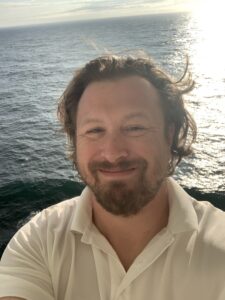
First Year Seminar, Bellevue College
j.allen@bellevuecollege.edu
Hello, I am the new chair of the First-Year Seminar program. I have designed and taught two different English 101 courses with a community engagement option. Students responded extremely positively to doing work that helped them connect to their communities and felt that the learning they did was deeper and more meaningful. I would like to continue to create these types of learning experiences for students at Bellevue College and I think FYS would be a fantastic way to get students engaged with the college and their communities!
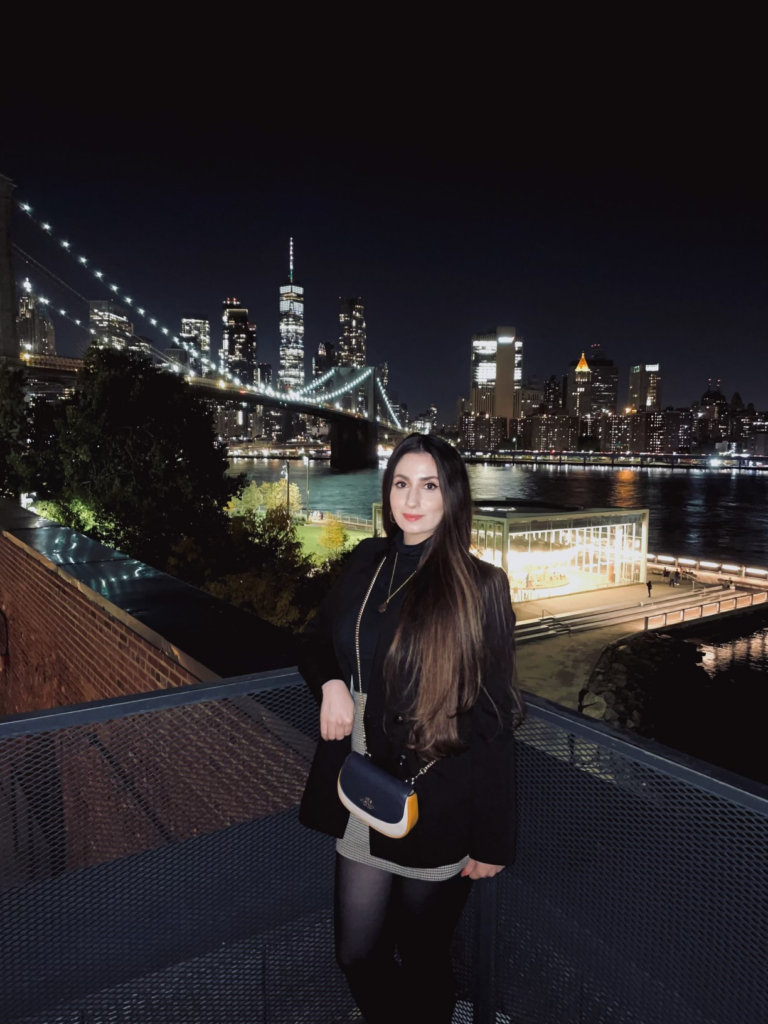
Political Science, Bellevue College
salam.awad@bellevuecollege.edu
My name is Salam Awad and I am an Assistant Professor in the Department of Political Science at Bellevue College. My research and teaching interests include international relations, post colonial studies, the Middle East, social movements, refugees and human rights. I am an avid reader, art enthusiast, and lover of history. My courses typically focus on critical applications of politics and provide new perspectives to help students critically analyze wider global issues. Education is vital to me because it allows people to not only build and create amazing things, but also gives us an avenue to know ourselves and each other better. I believe this is central if we want to live in a world that is free and fair.
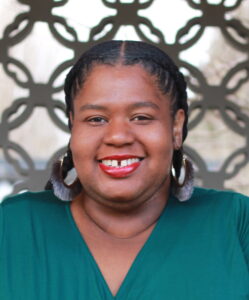
Health & Wellness BAS, Bellevue College
t.boyntonhoward@bellevuecollege.edu
Tamara Boynton Howard, MPH is an educator with a focus on goal setting, healthy relationships and comprehensive sex education. Her goal is to make healthy relationships the norm. Her education background includes a BA in psychology and MPH in community health education. She has taught for over 20 years and believes that engaging in real world problems is what helps students grow. It is important for them to apply their learning and make mistakes in a safe learning environment. Her first book Write Your Life Right is a tool designed to help people transform their life into one they don’t need a vacation from! Tamara resides in the Pacific Northwest with her wife, Darnita. They love listening to kpop, traveling, and eating really fancy food on special occasions.
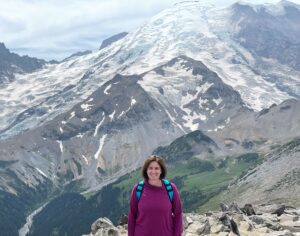
Basic and Transitional Studies & ESL, Bellevue College
krista.capodanno@bellevuecollege.edu
I have been teaching English Language Learners at Bellevue College since 2015 in the English as a Second Language and Adult Basic Education departments, and the English Language Institute. I have also taught or tutored through other organizations in Bellevue such as Eastside Literacy, Hopelink, and the VIBES program in the Bellevue School District. At Bellevue College, I have collaborated to develop a three-quarter program based on community engagement and have had many guest speakers from community organizations in my classes. One of the goals of many of the students in the ESL program is to become more involved in the community. Through the RISE Community Engagement Fellowship, I hope to have the opportunity to build relationships with community partners to facilitate more student involvement in the Bellevue College and greater Bellevue area.
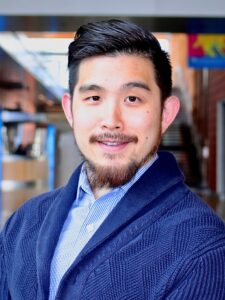
City of Bellevue
jchan@bellevuewa.gov
Justin Chan, a first-generation Taiwanese American, is currently the DEI Community Outreach and Engagement Administrator for the City of Bellevue, leading the internal and external outreach and engagement programs and guiding the City’s Diversity Initiative 60 recommendations. Justin previously served as the Equity, Diversity, and Inclusion Administrator at the Department of Social Health Services, Developmental Disabilities Administration, supporting over 4,500 employees and around 45 thousand clients. His previous roles include Equity and Professional Development Administrator for the Department of Children, Youth and Families, Legislative Assistant to Seattle City Councilmember Sally Bagshaw, and Interim Director and Executive Assistant to the Washington State Commission on Asian Pacific American Affairs.
He currently sits on the Board of Directors of the Chinese Information Service Center. Justin is a Certified Diversity Executive and graduated from the University of Washington with an Executive Masters in Public Administration. In his free time, Justin enjoys scuba diving and hiking and spending time with his friends and family.
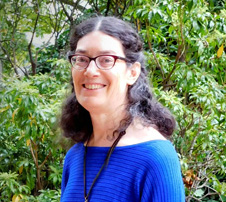
Basic and Transitional Studies, Bellevue College
nancy.emery@bellevuecollege.edu
I teach English to speakers of other languages, some of them in the immigrant/refugee program and some international students. I also teach Adult Basic Education English and Math, and GED Test Preparation. I like bridging communication barriers, and because I enjoy learning myself, I like to teach and hope to make learning interesting for other also. I have a background in languages and literature, and an MA in linguistics as well as one in teaching ESL. My thesis was on American Sign Language, and I studied ASL and sign language interpreting at Seattle Central College. (I also took computer, music and acting classes at Seattle community colleges, and was very impressed by the pride the colleges took in being inclusive rather than exclusive.)
I have taught abroad in Malawi (in southeastern Africa) as a Peace Corps volunteer and in a university in China as an English language teacher, both of them during my midlife years. (I had an ambition to learn a language for each continent of the world, saving English for Antarctica, and have a start on all but Australia, but a lot of them are rusty.) When I was younger, I was an activist for peace, feminism and gay rights, and was part of a volunteer bookstore collective in Seattle called Red & Black Books, which was a beloved institution in the progressive community there. I like poetry, stories, cats, mountains, origami, watching sumo, and growing heirloom tomatoes. I look forward to meeting you!
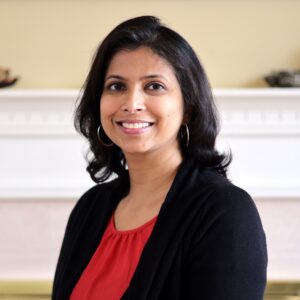
Grassroot Projects & Overlake Hospital
nimisha@grassrootprojects.org
Nimisha lives in Sammamish, WA with her husband and their teenage son and daughter. She is a Physical therapist by qualification and loves working with the elderly. She graduated from the University of Indianapolis in 2002, and received her Doctorate from Massachusetts General Hospital (Boston) in 2007. In high school she was the President of the Environmental club, as well as the Interact club which focused on organizing collection drives for families living in poor socioeconomic conditions. Her passion for helping children continued into adulthood with being a volunteer with the polio eradication program in India. She also continues to volunteer with the PTSA at her children’s schools. She is also on the Community Advisory Board of Cascade Public Media. Nimisha relates to the immigrant experience having personally gone through hardships in wayfinding and the feeling of displacement that comes with a move to a new country. She also wants to give kids the option to enjoy their childhoods a little longer and not be forced to grow up too soon.
This led her to establish Grassroot Projects in service of immigrant and refugee families. Grassroots Projects is a nonprofit organization committed to empowering disadvantaged children from low income/immigrant/refugee/undocumented families in the US through their Care and Connect Program that provides assistance with custom care kits of basic essentials like diapers, clothing, car seats and grocery gift cards for culturally relevant foods; and their Sponsor a Passion Program that focusses on the importance of play for kids to pursue enrichment classes of their choice so they can explore and develop their own passions.
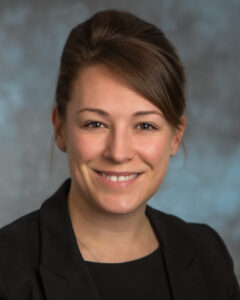
King County Elections
kendall.levanhodson@kingcounty.gov
Kendall Hodson directs external affairs, including intergovernmental and stakeholder relations, as well as language services and community engagement for King County Elections. She oversees communications and marketing, budget development and coordinates strategic initiatives and special projects. She believes that it is an absolute privilege to get up every day and work on ways to make it easier for people to make their voice heard. Some of the most impactful work she and her colleagues do at King County Elections is working with community partners and educational institutions on voter education and engagement.
Prior to working at King County Elections, she managed administration, performance, policy and systems for the county’s central human resources and as a strategy and policy analyst for the King County Executive’s Office. Kendall holds a master’s degree in Public Policy from Harvard University and has also worked in state and federal government.
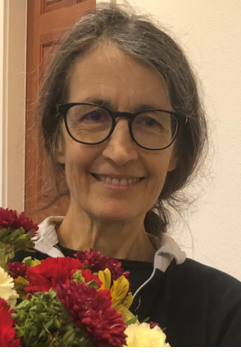
Anthropology, Bellevue College
khunt@bellevuecollege.edu
I grew up in New Zealand, spent 5 years living in Canada, and have since lived in the US, first in California and then in Washington. I like reading, walking, puzzles and eating vegetarian food, as well as spending time with family. On campus, I’m part of a committee which advocates for adjunct faculty. I have been teaching for many years. I primarily teach linguistics classes in the Anthropology Department, looking at cultural and social aspects of language. I enjoy interacting with students and seeing how the topics from class relate to their own lives. Mostly I see this through the research projects they complete, which give me a glimpse into the different communities they are part of. In the past I gave students the chance to volunteer in ESL classes on campus, as an optional service-learning part of the class. I would really like to offer something like that to students again in the future, and I hope that this fellowship might create a relevant connection. I’m also hoping it will broaden my knowledge of community concerns, and hopefully see ways in which I can incorporate these issues into my classes.
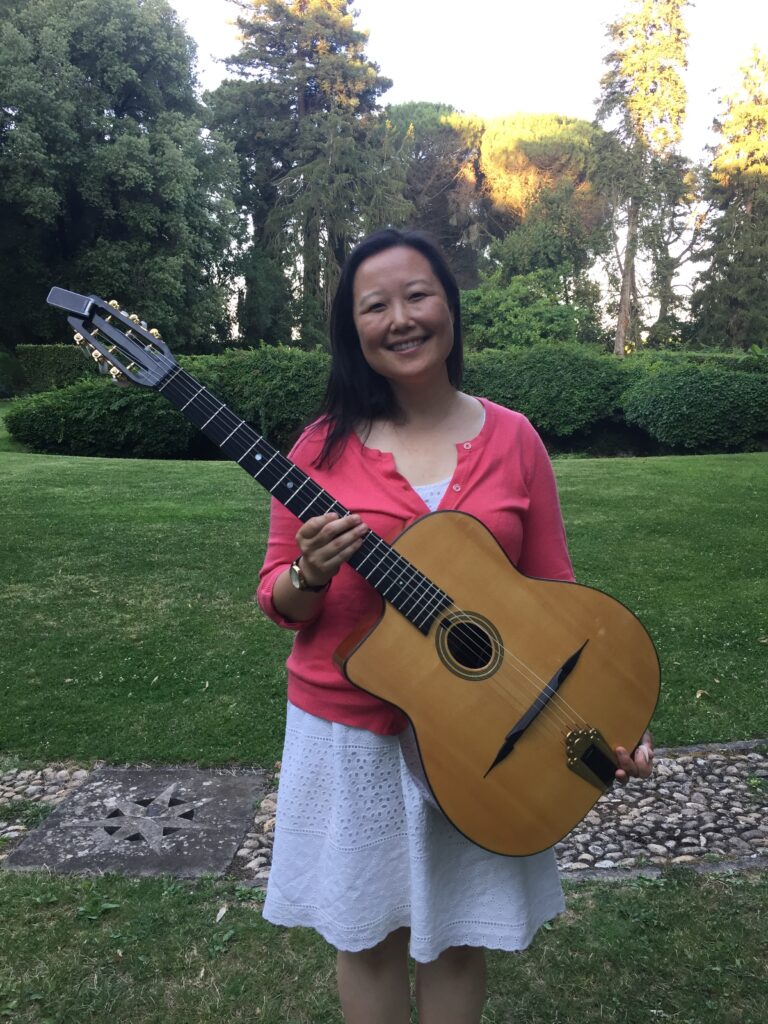
Chemistry Department & ATD/Guided Pathways, Bellevue College
jmayer@bellevuecollege.edu
Hello! I am a Chemistry instructor and have taught at BC since 2005. I have served as a program chair since 2010, and Achieving the Dream (ATD) co-lead since 2017. I became a chemist because of undergraduate research. I became an educator because of active learning techniques, like guided inquiry learning and chemical demonstrations. Service learning, civic engagement, climate justice, green chemistry, culturally responsive pedagogy are all areas in which I would like to expand my educational toolkit. Additionally, in my role as ATD co-lead, I’d like to connect more with our campus community to learn what is important and of value to faculty and staff in improving BC so our students can succeed.
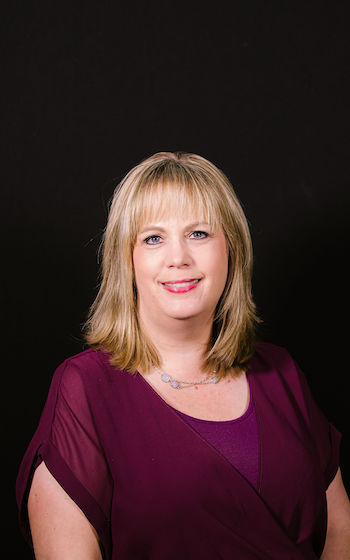
Lake Washington Symphony Orchestra
brook@lwso.org
I moved to the PNW 13 years ago with my husband and then six-year-old and I knew no one. How I met people initially was through the PTA at her elementary school. The elementary school she attended was Title 1 and, it was the designated school in the district that if you had a child with a certain level of special needs, this school was equipped to accommodate. In that first year, I met some very incredible people doing really important work around special needs and it was very inspiring. From there I got involved in the Bellevue Special Needs PTA, the Bellevue PTSA Council, Eastside Pathways and Community Conversations. All incredible people doing incredible work. Through that work, I learned a lot about the power of community and the impact to education. I met school board members, state legislators, city council members, mayors. It has been a huge eye opener and I continue to learn. With all of that said, I learned a lot about equity, diversity and accessibility.
I am now and ED of a professional orchestra and we strive to be in our communities, to support our students and teachers in the classrooms, to play music from a diverse group of composers and to work with artists in a variety of communities. We want orchestral music to be experienced by as many people as possible and part of that is making tickets affordable, offering free tickets and having music that will appeal to a variety of people. What I hope to get out of this Fellowship is continued growth and making connections to others who are committed to community and education.
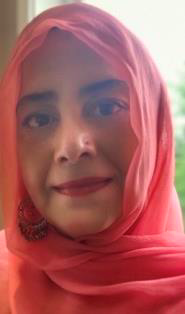
Community Member
nicky@essentialsfirst.org
Nickhath Sheriff also known as Nicky in the community is the Founder of MCRC (Muslim Community Resource Center) that is now in its 14th year of operations. Besides overseeing the functioning of MCRC, she has been part of the start of The Bellevue Backpack meals for kids, the Bellevue Cultural Conversations Programs and Essentials First Nickhath also serves on the Board of Hopelink and Bellevue Nourishing Networks. She currently serves as the Legislative District Lead for the 45th legislative district advocating for equity and affordable housing in our state policies. She was a former Board Member of The Sophia Way and on the steering committee of the Leadership Eastside Community Impact Team.
Nickhath is originally from India and has been living here in the US for the last 30 years. Nickhath has a Bachelor’s Degree in History, a Master’s Degree in Political Science & Public Affairs and a degree in Computer Programming from Penn State. She has also completed an Executive non-profit leadership program from the Harvard Kennedy School of Government. She is a trained and certified mediator /conflict resolution specialist and is an alumnus of the Leadership Eastside Executive program. Her passion is public service and making a tangible difference in the lives of people in need. Nickhath is a long time resident of Sammamish where she lives with her husband and 3 kids.
Basic and Transitional Studies, Bellevue College
tim.wellman@bellevuecollege.edu
Hi, I’m Tim Wellman, an adjunct faculty member in Basic and Transitional Studies, teaching English as a second language (ESL). We work with immigrants and refugees to the United States and, as an English instructor in this department, I find it rewarding to help my students increase their English proficiency so that they can accomplish their other goals in life. Many of them had certain jobs in their countries of origin and would like to do similar work here but it requires different certifications. Some just want to be able to communicate with Americans and others in the area with the most commonly used language here.
As a person who has lived abroad for a few years and struggled with making connections to local people, I think the idea of community engagement combined with education sounds really interesting for a few reasons. It can be a way for students to practice their English language skills in a real world situation. These can be more stressful than the classroom but it is also really a good way to grow. Also, I hope that it can help the students meet people in the area doing something that they like to do. That way, they can make acquaintances or even friends, which is really important.
Last Updated June 2, 2023
